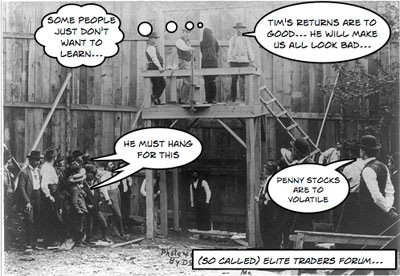Tim Sykes, a well-known figure in the investing world, began his journey as a college student at Tulane University. Born and raised in Connecticut, he initially aspired to become a successful entrepreneur. However, his path took an unexpected turn towards trading and investing.
Tim’s relentless pursuit of knowledge led him to delve into various investment strategies while still managing his academic commitments. Through self-education, networking, and mentorship, he honed his skills and started generating profitable trades.
This early success caught the attention of industry insiders and set the stage for his remarkable rise as an influential investor.
How He Discovered His Passion for Trading and Investing
During college, Tim stumbled upon an article about penny stocks that piqued his interest. Intrigued by their potential for high returns, he delved into learning everything about the stock market.
With determination and curiosity, Tim honed his skills, overcoming setbacks and finding fulfillment in navigating the complexities of trading and investing.
Overcoming Initial Failures and Learning from Mistakes
Tim Sykes, like many beginners in trading, faced setbacks and financial losses early on. However, he chose to view each failure as a chance to learn and grow. Analyzing his mistakes, honing his skills, and seeking guidance from mentors, Tim developed a unique trading approach that eventually led to great success.
Instead of being discouraged by setbacks, he embraced them as opportunities for growth and refinement. Through this continuous process of self-improvement, Tim overcame obstacles and achieved remarkable success in the industry.
Understanding the Concept of Weekend Trading
Weekend trading, an innovative approach embraced by Tim Sykes, involves analyzing stock charts over the weekend and executing trades when markets open on Monday. This strategy allows traders to gain insights before others and react quickly to market volatility.
By studying charts during the weekend, traders can identify potential opportunities and position themselves strategically. However, challenges include gaps between Friday’s closing prices and Monday’s opening prices.
Successful weekend trading requires technical analysis skills, risk management, and the ability to interpret historical data effectively. Overall, this strategy offers the potential for increased profitability and staying ahead of market trends.
Exploring the benefits and challenges of this approach
Weekend trading has its advantages for those willing to put in the extra effort. It allows traders to spot potential opportunities before regular market hours begin on Monday, giving them a head start and a chance to capitalize on any weekend market movements. However, there are also challenges involved.
Limited liquidity during non-traditional trading hours can make it harder to execute trades at desired prices, while increased volatility can lead to sudden price swings. Traders need to carefully consider these factors and develop appropriate strategies to navigate successfully in this specialized trading environment.
How Tim Sykes Developed His Weekend Trading Strategy
Tim Sykes recognized the potential of weekend trading early on and spent years refining his strategy. Through extensive research, analysis, and trial-and-error, he developed a unique approach that has yielded impressive results.
His strategy involves identifying specific patterns and indicators in stock charts during the weekend, allowing him to make informed trading decisions when the markets open. By adapting quickly to changing market conditions and learning from each trade, Sykes continuously improves his decision-making capabilities.
His dedication and expertise in weekend trading showcase the skills required to succeed in this niche market.
Identifying Potential Stock Candidates Using Various Tools and Techniques
To identify potential stocks for weekend trading, traders employ a combination of tools and techniques. Technical analysis indicators and patterns, such as moving averages and chart patterns, help identify trends and entry/exit points. Fundamental analysis considers factors like company financials and industry trends.
Market sentiment analysis gauges investor sentiment through news, social media, and overall market reactions. By utilizing these tools effectively, traders can identify stocks with high profit potential.
Developing a Watchlist for Weekend Trading Opportunities
Creating a watchlist is an essential step in the weekend trading strategy of Tim Sykes. A watchlist, in this context, refers to a carefully curated list of stocks that meet specific criteria and have the potential to yield profitable trades.
Tim meticulously selects these stocks based on their technical and fundamental attributes, as well as factors such as liquidity and volatility.
When it comes to selecting stocks for his watchlist, Tim considers various factors that could significantly influence their performance. These factors include price patterns, volume trends, news catalysts, and overall market conditions.
By analyzing these variables, Tim aims to identify stocks that exhibit strong potential for price movement in the near future.
Furthermore, diversification plays a crucial role in Tim’s weekend trading strategy. To mitigate risk effectively, he ensures that his watchlist includes a diverse mix of stocks from different industries, sectors, and market caps.
This approach helps spread out risk across multiple investments and minimizes the impact of any individual stock or sector’s performance on his overall portfolio.
By developing a comprehensive watchlist that incorporates careful analysis and diversification principles, Tim Sykes maximizes his chances of identifying profitable trading opportunities. In Part II of this article, we will delve deeper into Tim’s specific weekend trading patterns and strategies.
| Factors to Consider when Selecting Stocks for the Watchlist |
|---|
| – Price patterns |
| – Volume trends |
| – News catalysts |
| – Overall market conditions |
Stay tuned for Part II of this article where we explore Tim Sykes’ specific weekend trading patterns and strategies!
[lyte id=’NQJo6q7v-w0′]






